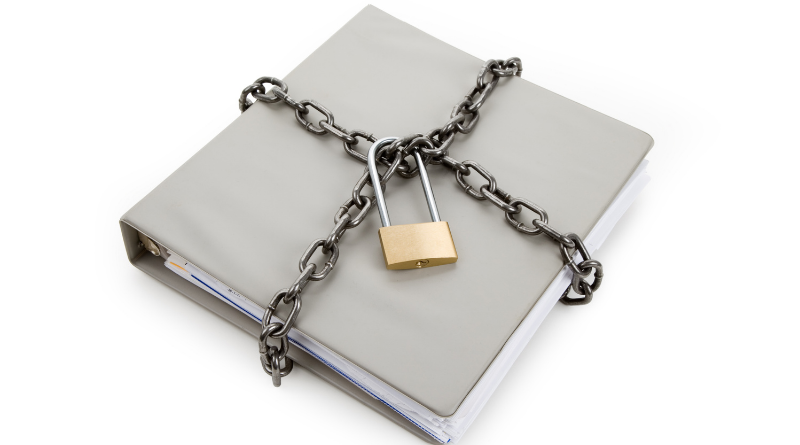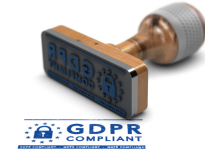Are your secrets safe?
Sometimes in business transactions you might need to provide, or be provided, with information which is commercially sensitive – if that information got into the wrong hands (such as your competitor) it might give them an unfair advantage in negotiations with your customers.
Some of that information can be protected through intellectual property rights such as patents, copyright and design rights all of which can be registered. However, it can be difficult to register some things and many types of information can not be registered.
For example, you may give a sales call service a list of your clients to contact. The last thing you’d want is for them to use that information for the benefit of your competitor, right?
The law around confidentiality can be summed up as follows:
“a person who has received information in confidence cannot take unfair advantage of it, and must not make use of it to the prejudice of the person who gave the information, without obtaining his consent.”
However, in order to be protected under this doctrine three requirements must be met:
- The information itself must have the necessary quality of confidence – labelling something as “Confidential” is a great way of achieving this..
- The information must have been imparted in circumstances importing an obligation of confidence – the best way of doing this is having a contract imposing confidentiality obligations (see below).
- There must be an unauthorised use of that information to bring a claim.
A trade secret is a specific form of confidential information which is commercially valuable, treated as secret and gives the owner a competitive advantage. Examples of trade secrets include secret formulae and recipes, such as the recipe for Coca-Cola, Krispy Kreme, Irn Bru and WD-40; algorithms, such as that for Google’s proprietary search; and customer lists.
If you are providing anyone with business confidential information, such as a trade secret, then it is imperative that that information is marked as being confidential and that you have a contract in place.
When dealing with another business, such as a supplier, these contracts are typically known as Non-Disclosure Agreements (NDAs) or Confidentiality Agreements.
In an NDA, you can specifically state what information is considered confidential, how it can be used (permitted use) and how it should not be used. A good NDA will also include other obligations on the recipient such as being able to disclose to staff, monitoring and logging of use, and importantly what happens if there is mis-use.
If you want a simple NDA, I’d recommend you take a look at OneNDA a collaborative effort between some of the top law firms around to create and agree a basic NDA.
What types of information may be protected?
Almost any type of information can be the subject of confidential information, and the law can be used to protect both commercial information and personal information.
Some examples of materials which may be protected include:
- Formulae which are not publicly available
- Recipes which are not apparent from the final product
- Processes such as beer or gin brewing
- Business methods (until they are used publicly)
- Financial information
- Customer lists
- Plans, sketches, designs
- New inventions that are not patented or are patent pending
- Business plans
- Computer programs
So you have an NDA and there has been misuse – what can you do?
There are three main outcomes for a claimant in a successful action for misuse of confidential information, namely:
- An injunction
- An account of profits
- An inquiry into damages
An injunction is usually the first choice remedy if the party seeking to protect the confidential information discovers the recipients plans prior to release. The claimant may then seek an order from the court that the person or company must not disclose or misuse the confidential information.
However, if the disclosure has already happened – the damage has been done – then an injunction is likely to be pretty pointless.
There, one needs to look at either an account of profits or to seek damages. This is where the court will assess and compensate for any loss which has been caused.
Employees are a frequent source of breach of confidentiality
Sadly while you can have tight contractual relationships with your suppliers or other third parties with an NDA, the most frequent way confidential information escapes is through disgruntled employees.
For an employer’s key information to have an application in the market, employees must have access to it and be able to use it on a daily basis. Therefore, it is not practical to simply keep confidential information under lock and key. However, employers can take steps, such as entering into confidentiality covenants, to prevent employees making use of the information either for themselves or for a third party (most commonly a competitor).
Unlike with a commercial relationship, an employer cannot confer confidential status on information just by saying that it is confidential. It is the employer’s attitude towards the information which provides evidence that may assist the court in determining whether the information can properly be regarded as a trade secret.
Employers should think about practical ways of putting employees on notice that certain information is considered confidential and commercially sensitive. Aside from specifying this in the employment contract, companies may be able to stamp certain sensitive documents with a confidentiality mark, print it on different coloured paper or circulate it in sealed envelopes marked “private and confidential”.
If you have important confidential information, and trade secrets, it is imperative that you have a robust contract of employment which sets out obligations not to disclose. It may also be necessary to have restraint of trade / restrictive covenants in your contract too.
What’s a restrictive covenant?
Restrictive covenants deal with what an employee can or cannot do post-termination. When considering enforcing a restrictive covenant the employer must be able to show that:
- It has a legitimate interest that is appropriate to protect
- That the protection sought is reasonable
It is generally accepted that, provided the contract states as such, that confidential information and trade secrets, such as recipes, client lists, business information, etc., can and should be protected.
The biggest question tends to be are the restrictive covenants reasonable.
There are a number of types of restrictions that can be imposed:
- Non-solicitation – e.g. the employee cannot approach existing customers or contacts
- Non-dealing – e.g. the employee cannot do any kind of business with someone in particular
- Non-poaching – e.g. the employee cannot poach staff
- Non-competition – e.g. the employee cannot set up or work in competition with the company
- Geographical restrictions – e.g. not to work in a 5 mile radius of the office
In all of these varieties, in order to be “reasonable” they need to be reasonable in duration and scope – there is no set guidance and the Court’s decide each case on its own facts.
For example, it would be unreasonable to stop an employee working for any competing business within the UK. Because the aim is to protect your confidential information, this achieves it but stops the employee working full stop.
Instead, we would usually recommend a clause saying they cannot solicit approach or canvass existing customers for a period of 12 months; or that they cannot set up in competition with the business within a 5 mile radius of a shop location.
Ultimately, whether a restrictive covenant is reasonable or not depends on the information trying to be protected and the type of business you’re in.
Restrictive covenants are a great way of stopping confidential information being leaked into the wrong hands post-termination, but if you want to enforce them, you need to have them properly drafted by an expert lawyer.
Originally posted 2021-10-15 15:20:41.
- Need to make redundancies but don’t know where to start? - February 27, 2026
- Are your secrets safe? - January 20, 2026
- The importance of personal KPIs in your business - November 30, 2025






